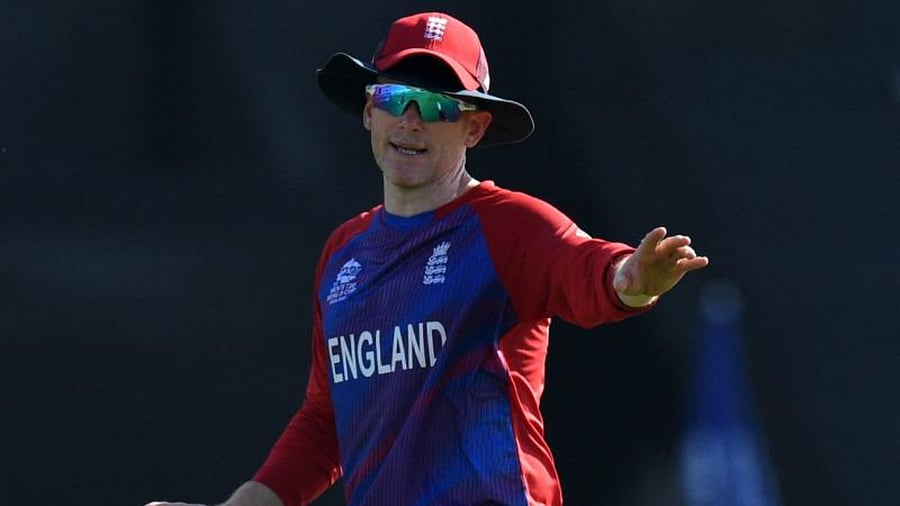
This T20 World Cup could well be India's equivalent of the 2015 World Cup moment which led to a white-ball revolution in England. Thrashed by Australia and New Zealand – the two eventual finalists – as well Bangladesh, England suffered the ignominy of being knocked out in the group phase even though the knockouts started at the quarterfinal stage.
Post that humiliation, England took several drastic steps. They banished then skipper Alastair Cook, James Anderson and Stuart Broad to the red-ball format and injected fresh blood that was ready to embrace aggression and shed diffidence. At the forefront of this change was newly appointed captain Eoin Morgan, who was backed up by an able infantry in Alex Hales, Jason Roy, Jos Buttler and Ben Stokes, joined later by the likes Johny Bairstow and David Malan.
Morgan also realised the importance of quality spinners in the side and turned Adil Rashid, a semi-part-time option at the time, into his main spin weapon. Hales has fallen out of favour for non-cricketing reasons but the rest of the group still forms an integral part of England's white-ball unit.
The brand of cricket England have played so far in the tougher of the two groups at the ongoing T20 World Cup has installed them as the strongest contenders to lift the title for the second time since their 2010 triumph in the Caribbean.
Nothing embellished their fearless cricket more than their win on Monday over Sri Lanka in Sharjah. This was only the fourth instance of a team batting first winning the match in 17 tries in the main round. Afghanistan have won twice - against Namibia and Scotland - and West Indies took the other, against Bangladesh. Interestingly, three of these results have come in Sharjah (out of six matches at the venue) and the other in Abu Dhabi, where four matches have been held. No team batting first has won in Dubai, which has hosted seven games. These numbers have been updated at the end of the England-Sri Lanka match.
Monday's clash was the best advertisement for English cricket. Despite losing three wickets inside the Powerplay for just 35 runs, they betrayed few signs of panic or pressure. They took a pause, sussed up the conditions and then targeted the right bowlers to run up a total of 163. Buttler blasted his way to a maiden T20I hundred while Morgan lent him able support. The few extra runs forced the Lankan batsmen to take more risks than they would have liked to and they perished while doing so despite better batting conditions, what with the dew having arrived on cue.
It's not just fearless cricket that England bank on. This approach is complemented by well-thought-out strategies based on vast data that Morgan is a big fan of. The way they demolished Australia was a perfect template of the brand of cricket they want to play. Morgan used Rashid in the Powerplay, knowing Aussie skipper Aaron Finch's susceptibility to leg-spin. He didn't give Moeen Ali a single over despite the offie being their best bowler in the two previous matches against West Indies and Bangladesh. In the Sri Lanka match, Moeen was back bowling in the Powerplay. Of course, all these strategies may not come off every time, but you need to have conviction in the way you want to play. Half-baked plans and knee-jerk reactions won't help.
None of this would have been possible had the English cricket management not put in place a system to identify the right players and backed the captain in his bid to transform their white-ball fortunes. The reward was a maiden 50-over World Cup crown in 2019, four years after they had been humiliated in the same event. And now, they are firmly on course to becoming the first team to hold both the T20 and 50-over World Cup at the same time!
With pre-tournament favourites India all but out of contention for a semifinal spot and a new captain set to take over the T20 team's reigns under a new coach, they would do well to take a leaf out of English cricket's book and redefine their approach to white-ball cricket which appears to be stuck in a time warp. Especially in India, that’s a difficult exercise to undertake, given the various pulls and pressures and the larger-than-life persona of several cricketers. Tough decisions are non-negotiable if India are lift itself from the morass of mediocrity. Over to you now, Rahul Dravid.
Watch the latest DH Videos here:
